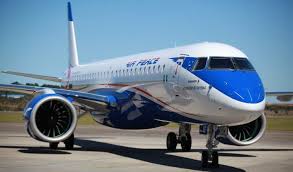linkedin.com/in/shadrachswantekambai
Fostering Growth, Innovation, and Sustainability in Airline Operations

in action, close up
Corruption practices in Nigeria have had a profound and detrimental effect on the airline industry. The prevalence of bribery, embezzlement, and other illicit activities has undermined the growth and stability of the sector, hampering its potential to thrive.
Corruption in Nigeria’s airline business results in a lack of investment, as potential investors are deterred by the risks and uncertainties associated with fraudulent practices. This hampers the industry’s ability to modernize and expand its infrastructure, leading to outdated facilities, limited routes, and inadequate maintenance, jeopardizing safety standards.
Furthermore, corruption fosters a culture of incompetence and nepotism, as individuals without the necessary qualifications or expertise are appointed to key positions through bribes or personal connections. This compromises operational efficiency, customer service, and ultimately the reputation of Nigerian airlines.
Corruption also breeds unfair competition, as dishonest practices such as smuggling, counterfeit ticketing, and illegal subsidies provide an unfair advantage to some carriers. This distorts the market, discourages healthy competition, and hampers the growth of legitimate airlines.
- Nigerian Aviation Minister Directive
- Nigeria’s Aviation Sector and a Call for Urgent Compliance
- Air Peace Airlines: Confronting Fierce Competition on the Lagos to London Route
- Brand Identity, and Airline’s Passenger Experience Disconnect
- Intersection of Branding and Culture: Airline Business
Prevention Strategies
Several measures can be implemented to prevent corruption in the Nigerian airline industry. First and foremost, strict enforcement of existing anti-corruption laws and regulations is crucial. This requires a robust legal framework, independent oversight agencies, and the implementation of effective whistleblower protection mechanisms.
Transparency and accountability should be prioritized, with regular audits and financial disclosures for airlines and regulatory bodies. Implementing electronic systems for ticketing, procurement, and revenue management can help reduce opportunities for corruption and ensure traceability.
Furthermore, enhancing professionalism and meritocracy within the industry is vital. This can be achieved by establishing comprehensive training programs, strict qualification criteria for critical positions, and merit-based recruitment and promotion processes.
Public awareness campaigns and education initiatives should also be conducted to foster a culture of integrity, emphasizing the detrimental effects of corruption on the industry and the broader economy.
Conclusion
The consequences of corruption in Nigeria’s airline industry are far-reaching. It hinders growth, compromises safety, diminishes customer trust, and undermines the country’s overall economic development. Combating corruption and implementing stringent anti-corruption measures are crucial to revive the Nigerian airline business and restoring its credibility both domestically and internationally. However, by adopting a multifaceted approach that combines legal reforms, transparency, accountability, and ethical practices, Nigeria can effectively combat corruption in its airline business and pave the way for a more prosperous and reputable industry.






0 Comments